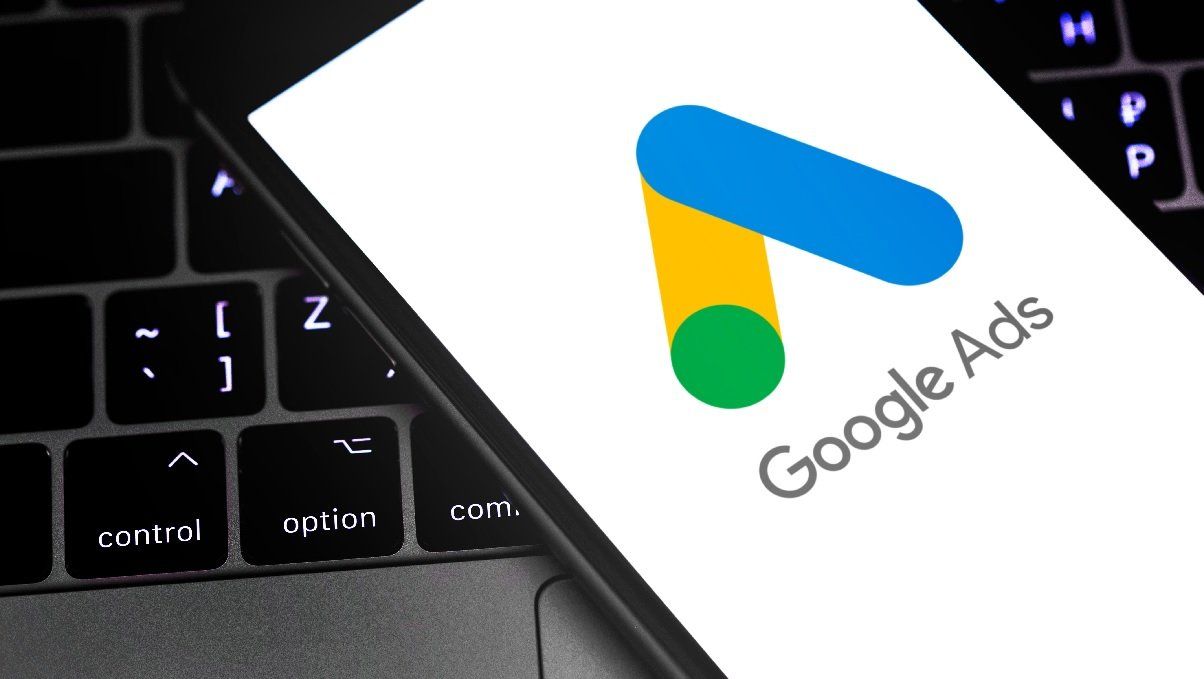THINKJARGON BLOG

In today’s world of digital marketing there are so many options and strategies that it quickly becomes challenging to know if you are making the right, or best decisions. In this episode of ThinkJargon, Jared breaks down the common issues that marketers experience when their results don’t reflect their effort.

Digital marketing today is a powerful advertising and promotional weapon. One of its biggest strengths is that you track every dollar you spend in terms of how it relates to sales. In this episode of ThinkJargon, Jared and Stuart outline how you can measure the return on your marketing investment dollar.

TRANSCRIPT OF EPISODE 14 Stuart: 00:00 So I've got a true story to share with you. Last month, I was dabbling in Google ads. I typically am referral based only and have done so for a number of years, but I wanted to see, well there's Google ad words thing that Jared has been talking about in the podcast was all about. So I started myself a campaign and after a month or so plenty of activity but conversions were nothing to speak of. And so I shut it off after a month. Does that sound like something you've done? If it does sound like something you've done in the past, this episode is for you. It's Google ads suck, true or false? And Jared is driving this car today. Intro: 00:38 Think jargon is a podcast about marketing, sales and content creation. Do acronyms like SEO, PPC and CRM. Make your head spin? Then this podcast is for you. We cut through the jargon used by fancy agencies to help you make sense of the ever changing world of modern marketing. Thanks for joining us. And now here are your host inbound marketing expert, Jared Broussard and digital content creator, Stuart Poulton. Stuart: 01:06 Hey Jared. Jared: 01:08 Stuart! Stuart: 01:09 How you doing? Jared: 01:09 I'm doing great. Do you know why? We are now the 2019 national champions! Stuart: 01:15 Dude, it's been crazy around here. Jared: 01:17 Yeah, Stuart: 01:17 I think things are finally settling down though. Jared: 01:19 Oh yeah. Yeah. I think we're kind of coming off the cloud, if you will, of being one of the best teams of all time, all time. Stuart: 01:26 And, but my Instagram feed, it's nice to start seeing other content. Jared: 01:30 It is. It gets a little clouded with purple and gold. Stuart: 01:32 It does, but a what a time. What a time. What a time. Yes. So today's episode we're going to be talking about Google ads. Now, you don't know that I've been dabbling in this myself for my own purposes, and so I may have some examples of, of how not to do it. Sure. But this one's on you, man. You are the marketing experts. So so Google ads suck. Jared: 01:52 True or false? The answer. You ready for it? Stuart: 01:56 Yeah. Jared: 01:58 False. They do not. They do not suck. Okay. Stuart: 02:02 Well. Give me an example of of, of why people might think it sucks. Jared: 02:07 And let me just say, there's a caveat here. And the caveat is not all ads work, but that's across the board. Not just in Google. It could be Facebook, it could be television, it could be radio. Industry-Wide, there are going to be times when ads do not perform up to expectations. But what I am here to tell you is that it's not Google's fault. Okay? So stop blaming Google if your ad words suck, it's a you problem, not a Google problem. Stuart: 02:41 Own it. Jared: 02:42 Own it. But I do want to kind of give you guys a, for what it's worth, three main examples of why Google ads may suck and what you can do about it. How's that? Stuart: 02:53 I like the sound of that. Jared: 02:55 Okay? First of all, I hear it over, over and over again from clients and customers and people that we're just starting to talk with. Google ads are too expensive. Well, first off, anything that's not working is expensive because it's like throwing money out the window. Stuart: 03:14 A marketing campaign that is not working is costing you, Jared: 03:16 I think $5 at the casino for me, $5 that the casino is wasteful and expensive, but I don't know what the heck I'm doing at the casino. Stuart: 03:26 Right? Jared: 03:26 Right. Which is why I don't go. Stuart: 03:29 So, what we're really saying is that expensive Google ads are the ones that don't work. Jared: 03:33 There you go. Bingo. So what you need to know on that note too is learn how to, to kind of be more effective with your budget. Instead of just saying, I it costs too much money or it didn't work. The beauty of Google ad words, unlike many other ad formats or our platforms, is that there's no cutoff budget You know, if you want to spend $50, you can spend $50. Uho there is no budget minimums and you know, there are things that kind of, you can filter out to help you, mest invest your money In other words, you can, you can be more restrictive with, u,d this may be getting too technical here, but when you're bidding on keywords, if you're just bidding on broad keywords like shoes, well you're going to get anything and everything that's related to a search with shoes and a lot of those searches are going to be unmerited, unqualified traffic that's going to click on that ad, go to your website and it's going to be wasteful because every time someone clicks on that ad you are charged. Stuart: 04:46 So, so bring me up to speed here. So I ran a Google ads campaign myself through Christmas ish into January. Sort of. It was a bad time. I should have just waited till January. But, I wanted to do it and I didn't see anywhere where do they still price keywords based on the industry and how the search volume is or how they price? Jared: 05:10 It's a, it's an auction based process. Stuart: 05:12 So it still does it that way. The, I didn't notice though, cause in the process of setting up the campaign, it just said, okay, well we suggest your budget is this. Yeah. And it almost hides that now, which I thought was interesting. Also you mentioned that there is, you know, there's no minimum buy. You can cap your, your purchase. Right? Can you talk about that? Jared: 05:31 Yeah. So you know, if you, if you let Google spend the money it's going to by default you know, spend as much as it possibly can based on the amount of searches that are taking place around your keywords. So you do want to set parameters and filters around your sector in your, your campaign. Otherwise, if you're not giving any guidelines, you're going to end up spending way more than what you were planning on spending. Stuart: 06:05 I noticed something when I set up my campaign, I put my initial key phrases in that I wanted to be listed for and then it suggested and then kept suggested and by email additional keywords. Yes. that, that seems to me like a way they would increase the frequency with which your ad shows up and thus increase their income Jared: 06:27 It's a slippery slope because Google obviously has a vested interest in you spending more money. Right? So by, by nature, they're going to recommend more keywords and they will often have alerts that you're not, you know, this campaign would be much more effective if you had a higher budget day. Of course it would be much more effective if you had a higher budget. It should say this campaign would be much more effective if you were smarter. Stuart: 06:55 Google would not say that to me. Google makes me feel great. Jared: 06:56 Remember they're, they're all about the end user, the user happiness. So you know, there's a case right there. So what I would say is instead of bidding on more keywords instead of bidding on maybe broad keywords I would get more long or what they call short tail keywords, I would get more specific with your keywords that you are bidding on so that the traffic that's coming in as much more qualified. So instead of bidding on, and this is hypothetical shoes, you might want to bid on red shoes for athletic men or whatever. Okay. So that it's much more specific. And then of course, when that person goes to click on the ad and goes to the landing page or the website, please make sure that you have red shoes for athletic men Stuart: 07:50 Of, so is it, is it necessary to list one of your search terms as your geographic location? So if it were red shoes for athletic men in Louisiana or in Baton Rouge, or does it automatically know to list it there? Or how does it figure out where you are? Jared: 08:07 It knows based on your geographical parameters. Okay. So you don't have to list a keyword that includes your geographic location. Stuart: 08:13 Unless you specifically want to catch that. Jared: 08:16 Exactly. Stuart: 08:17 Okay. Cause I, I tend to do that. I forget that, that everything is, has got the geo location turned on nowadays. And so I'll put in videographer Baton Rouge, or I'll put in, you know, pizza store, Baton Rouge. Jared: 08:29 Now if you don't put in those parameters and let's say you forget, or you, you've skipped that step or what have you it's, Google's going to start showing your ads in Seattle and San Diego and New York. So you, you want to make sure that wherever you're the extension of your services geographically wise speaking, you want to make sure that you put those parameters in. Otherwise those will be, again, why Google doesn't work. It's because you're targeting people that you can't even service. Stuart: 08:58 Pull me back if I'm, if I'm jumping too far down the road here, but is there a way to identify if your search term comes up for a user that you would consider to be unqualified? Jared: 09:10 Yes. So in the, Stuart: 09:15 Sorry, sorry, I'm sitting, I'm sitting on my phone watch series now having a conversation episode with Stewart. Jared: 09:27 Every single episode we have, his phone goes off,. Stuart: 09:28 Sorry, let me just kill it on the floor. Sorry. I was sitting on my phone and Siri just bought dialed Siri and she was trying to get in that conversation, shaking my head, my bad, my bad. Anyway, so you're saying you've got a campaign running and you're worried that you're getting unqualified traffic. How do you, how can you check that? Jared: 09:50 So inside of the Google ad words software, you can go to search terms which is kind of difficult to explain because we're not looking at it, but you can go under your your AdWords campaign and there are search terms that you can go and review and basically it's all the keywords that people have typed in that have resulted in a click to your website. Stuart: 10:15 So you can, you learn anything about the user. You can learn about what they're typing in and what their intentions are, IP address, location, anything like that. Jared: 10:25 You can learn about IP address locations, but I think with privacy those are getting chopped away. The, the, the, the way to use that tool is basically look at the keywords that are because you know, no matter what, you can't predict what people are going to search for. You can think of the best search terms, you can do research, but until you activate that campaign and see in real time, in real life what people are searching, you'll be surprised. So that tool is extremely helpful in weeding out what we call negative keywords. So it's people that are typing in things that are irrelevant to your campaign and should, you don't want that to happen again. So if it's, you know blue shoes and you don't sell blue shoes, then you want to list blue as a negative keyword. Stuart: 11:16 Okay. You can do that. You can eliminate keywords. Jared: 11:18 Absolutely. Stuart: 11:19 So, so if what you're saying is that if if you are a person that thinks Google ad suck you should, if you think they do, you should probably get more specific about the key phrases that you're listing inside your campaign. Jared: 11:32 Yeah, I think oftentimes, and I'm not trying to be overly critical, but I think oftentimes it's not Google, it's the user and they just don't have the experience. Look, I'm still learning everyday. I've, I've, I've learned new things. Google AdWords is is extremely complicated and it takes you, it's not a set it and forget it type of a venture. It's definitely going in on a daily basis and looking at all of the things that come into play, whether it's the terms that are being used the bid levels where you're sending them you know, where you're ranked on the as compared to your competitors. Jared: 12:13 So there's a lot that goes into it. So that number one, when they're saying it's too expensive, it's like likely because you haven't set the filters. Stuart: 12:20 Gotcha. Jared: 12:21 Number two, the traffic I get from Google ads never converts. They're not qualified. That is a very common challenge for ad words because you get all these people coming to your site that are quote unquote, not qualified. So the best way to kind of tell this story is maybe, or, or kind of make this point is to tell a story. Stuart: 12:46 I like stories, don't you? Jared: 12:48 And this is a very good one. So this one's from eBay. So eBay is a company I'm sure most people are familiar about. And you asked eBay today if Google AdWords sucked, you know what their answer would be? Stuart: 13:03 I would hope no. Jared: 13:07 Their answer would be yes. Google ad words suck game. But let me tell you why. If you take a little kind of, if you dig a little deeper into this story, I'm going to tell you why they think Google ad-words suck. So eBay spent millions upon millions of dollars on Google ads when they did a case study. This is back in I think 2013 so quite quite a while back. Yes. So they spent millions if not billions of dollars. I don't know what the exact budget was. And they ran a Google ad words for pretty long time and came to the conclusion, did a case study that Google ad words did not spike their sales at all. What went wrong? Stuart: 13:52 So let me guess, let me guess. It's because Google AdWords suck. Bingo. Huh? Jared: 13:59 Well, it wrong to eBay. So they do not suck. What happened was there is a a functionality or a feature feature. Thank you. That Google ad words office offers called dynamic insertion. So basically what that means. Yes. So you search red shoes and basically the ad that comes up is going to dynamically insert the word red shoes in your ad. So it's sort of taking what you know, people are asking actual display portion that the, the, the, the, the user see the link part that the main headline dynamic insertion dynamically inserting key phrase into the ad itself. Right? Which is a great feature when used appropriately. Stuart: 14:50 I can imagine would be. Jared: 14:51 However, what eBay did was they use the dynamic insertion feature on every single keyword imaginable, right? Stuart: 15:05 How many of you talking about like English language? Jared: 15:08 Thousands. Stuart: 15:09 Wow. Jared: 15:09 So what happened as you can imagine, is when people type in any keyword that you can think of, all of a sudden eBay is showing up with that keyword as an ad. Stuart: 15:23 So hit me with some examples to help me understand that. Jared: 15:26 Matter of fact, I do. I'm glad you asked me. You're ready? Yup. I've got, Oh, I wish we could show this, but I'm, here we go. You ready? Boogers for sale. Stuart: 15:36 Seriously. Jared: 15:37 Boogers for sale. That was an eBay low price. Boogers huge selection. Ebay.Com. Stuart: 15:43 Now I get it. Jared: 15:45 How about corpses, corpses for sale. Check out the deals now. Stuart: 15:54 Oh, that's good. Jared: 15:55 How about dead bodies for sale? How many screen captures and free and viral? Three dead cats by dead cats for free. Get a free $250 shopping card. Let's see, how long is that running for before the people that eBay month. Stuart: 16:15 Oh, that's terrible. Jared: 16:17 How about puke for sale? Yep. Everything. Yep. Everything to do with puke turds, I'll stink. So I think you get the point, right? Yeah. So that's, that's dynamic thing. Jared: 16:31 So shouldn't go on a ride. Oh big times. So that unfortunately they set it and forget about it. So they're not managing it. Right. So all of these words that are being church are being dynamically inserted into an ad. And before you know it, hundreds of thousands of dollars have been spent on things like dead animals for sale. Stuart: 16:52 Oh, that's crazy. Horrible. No wonder eBay reports no spike in sales. Jared: 16:57 There you go. So is that a Google problem or is that a you problem? Stuart: 17:00 All right, Jared, you're swaying me to your to your opinion that it's a user problem. Typically you got any more examples? One more hit me. Jared: 17:08 The third and probably most common one is wasteful clicks. So there's a lot of cl, you know, as you know, it's a pay per click system on that, on that. Stuart: 17:18 So I know with YouTube ads there's a they charge you differently based on whether the person clicks the skip hat. S that true for the Google AdWords as well? Jared: 17:27 No. Stuart: 17:28 You click, you pay, right? But if it displays, but no one clicks on it, you're not saying no, it's not by impression. Okay. Carry on. Sorry to interrupt. So did you, you lose your train of thought? No, not at all. I'm right on it, baby. Nice. Jared: 17:42 So wasteful clicks are a big deal. There are plenty of cases where people spend tons of money and as you know, your charge by click. So some of the, there, there are parameters that you can put in place to kind of not completely eliminate, but nearly eliminate wasteful clicks. Some of the things are, you can set alerts where it, it shows you keywords that you're bidding on that have absolutely no conversions. So if you're spending, let's say you're not looking at this, you could spend thousands of dollars on keywords that people were clicking on and they have not converted one bit converting, meaning they've filled out a form or made a call, you're getting no action on those keywords, but you're spending a significant amount of money on those keywords. Stuart: 18:27 Gotcha. So there are alerts that you can put in place to kind of notify you in enough time so that you're not wasting thousands of dollars and having wasteful clicks. Jared: 18:36 You can add negative keywords, which is what we spoke about earlier. There are many times that there are things that you don't even think of, but that you need to put in place as negative keywords. And some of those are geographical based, some of those or just competitively. Some of those are just words. For instance like if you are an air conditioning company for residential or you know, for homes, you don't want people coming to your website that need their 1979 Toyota Corolla AC fixed. Stuart: 19:16 Gotcha. Jared: 19:16 That's a wasteful click cause they don't service Toyota Corollas. Sure. So you want to add you know, makes and models of cars, the word car auto. That way when people are searching for auto AC repair, your not coming up in that list of possible links. Stuart: 19:37 So, so I didn't, I didn't do any of that right when I launched my campaign. I didn't even know that negative keywords were a thing. But that makes a lot of sense. Huge thing. Jared: 19:45 Negative keywords is probably the first place Whoa. Where you can kind of save a wasteful spend. Wrong geographical targeting. That's another one. Keyword match types. So in Google you can have broad, which basically means anything and everything that has to do with shoes if they've searched it. If you have broad match on, you're going to get a collection, a huge spike in visits. But you may not want that. That's, you know, that's for special circumstances. You may want to do like specific keyword matches where are exact matches, where they have to put in the exact phrase that you're bidding on or search query. Otherwise you are not going to show up. And the more specific you get, the less waste you have. And then you can set up other automated rules, like if a keyword cost more than $50 without a conversion and turn it off and they can email you and notify you. So things like that. Jared: 20:48 So they're, you know, the moral of the story is for all of this is it's likely not Google's problem. It's likely you, that's the problem. You know what I think the issue is, is it's in Google's best interest to make Google ads simple to get into. Yes. And that initial workflow didn't include 80% of what you just said. And so if you didn't know, you can set up a campaign really easy on Google like I did last month and ignore all of those things and run into all of those reasons you just listed as to what might, you know, might leave me thinking that Google ads. Jared: 21:26 Yup. Stuart: 21:27 Good topic, Jared. Jared: 21:28 Absolutely. Stuart: 21:29 Good topic. Stuart: 21:30 I hope it helps him mind. He has already helped me and if it does, I would love to hear from you guys because you know, how can they find you Jared: 21:39 Uh jared@blinkjarmedia.com. Stuart: 21:41 And there was no reason to contact me about this. So enjoy your time with Jared. We've got a run now we're heavy. Take care. All right. Thanks for listening to Think Jargon. Outro: 21:51 If you liked this episode, share it with a friend or post a review at iTunes. Your reviews. Help new listeners find our show. Have a sales question or a marketing problem that you'd like us to cover on a future episode. Contact the show@thankjargon.com. Until next time, make sure you make the world a better place and cut through the jargon.



